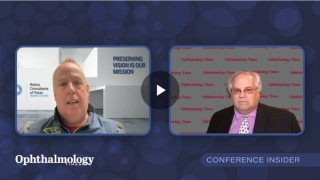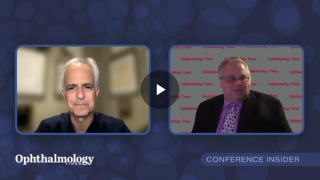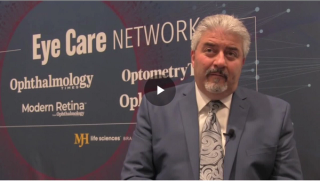
AMD
Latest News
Latest Videos

CME Content
More News

Judy Kim, MD and Peter Kaiser, MD discuss the use of biosimilars and the potential introduction of biosimilar aflibercept for treating retinal diseases. Experts discuss their preferences for specific drugs and highlight the evolving landscape, anticipating challenges in drug selection and emphasizing the need for collaboration between retinal specialists and insurance companies to optimize patient care.

In this insightful discussion on changing therapeutic approaches in neovascular age-related macular degeneration (nAMD) and diabetic macular edema (DME), Judy Kim, MD and Peter Kaiser, MD address barriers like step therapy and the impact of insurance-guided choices on treatment outcomes. The conversation emphasizes the need for a personalized approach, citing clinical trial data while acknowledging the challenges of aligning real-world practices with stringent trial protocols.

Investigators believe that AMD and cancer may have similar risk factors in common.

Rajendra Apte, MD, PhD, has received the Research to Prevent Blindness /American Macular Degeneration Foundation Catalyst Award for innovative research approaches in studying age-related macular degeneration.

The 3 participants have also received their first aflibercept injection for the treatment of wet AMD.

Twelve-week data from the Ph1b/2a AMARONE trial reveals Restoret to be well-tolerated in patients with diabetic macular edema and neovascular age-related macular degeneration.

Preliminary safety data support a favorable benefit-risk profile at both dose levels. The preliminary efficacy and safety data trending similar to or better than the OPTIC study, in which patients continue to see ongoing clinical benefit through at least 3 years.
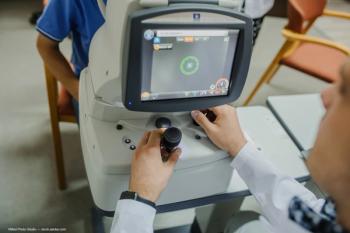
The study further defined the relationship between delayed rod-mediated dark adaptation and the status of outer retinal bands on optical coherence tomography.

A minimum of 5,000 patients with up to 5 years of follow-up will be included in the study, with patients from a variety of practice settings and clinician experiences in 28 countries and 500 sites
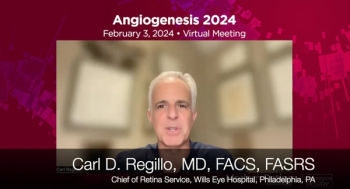
Carl D. Regillo, MD, FACS, FASRS, discussed recent data from the DAVIO 2 trial in his presentation at the virtual Angiogenesis, Exudation, and Degeneration 2024.

Early-onset drusen maculopathy (EODM), is part of the age-related macular degeneration (AMD) phenotype that occurs in individuals under 55 years of age.
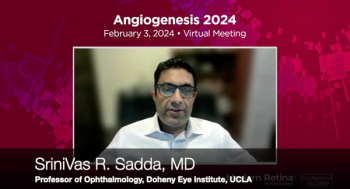
SriniVas R. Sadda, MD, sat down with David Hutton of Ophthalmology Times to discuss his presentation about precursor lesions for development of atrophy and AMD from the Angiogenesis Exudation and Degeneration 2024 event.
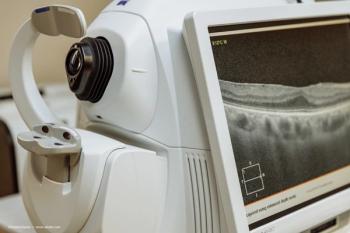
Multimodal technology bridges the gap between advanced age-related macular degeneration (AMD) biomarkers and clinical features.

President and CEO of Ashvattha Therapeutics talks about the company's unique nanomedicine technology
David Hutton of Ophthalmology Times talks with Jeffrey Cleland, PhD, President and CEO of Ashvattha Therapeutics, about the company's D-4517.2, a unique nanomedicine technology for the treatment of wet AMD and DME.

A new case-control study found that older people ages 70 and older living in South Korea’s urban areas were at a significantly higher risk for developing incident exudative age-related macular degeneration.

According to the company, ABBV-RGX-314 continues to be well tolerated in over 100 patients from three dose levels with no drug-related serious adverse events. The new data was presented at the Hawaiian Eye and Retina meeting in Maui, by John Pitcher, MD, and includes 6-month results from two additional dose level 3 cohorts.

Principle findings showed that aflibercept 8 mg demonstrated similar improvements in BCVA and CST when compared to the 2 mg dose of aflibercept.

Company presenting data from the Phase II AAVIATE trial of suprachoroidal ABBV-RGX-314 for the treatment of wet age-related macular degeneration January 16 at the Hawaiian Eye and Retina 2024 Meeting.

Because acetylcholinesterase inhibitors have anti-inflammatory effects, authors of the study wanted to determine if these drugs reduce the risk of AMD in patients with Alzheimer’s disease.

The company announced more advancements of its RASP modulator platform, including plans for ADX-629 and ADX-246.

This study compared AVT06 with aflibercept (Eylea) in patients with neovascular AMD.

According to a news release, the services will be provided for RetinalGeniX Technologies’ Institutional Review Board to conduct a study to personalize medical evaluations for patients receiving treatment for wet macular degeneration.

According to the company, the designation follows interim Phase 1 PRISM clinical data for 4D-150 that demonstrated an encouraging safety, tolerability and clinical activity profile in patients with wet age-related macular degeneration.

According to the company, the NORSE EIGHT study is set to kick off during the first quarter of 2024 and the Biologics License Application in the US is likely by the end of 2024.

The research marks the first attempt at integrating a photoactivatable anti-angiogenic agent with a photosensitizer into a single nanoformulation for AMD treatment.








